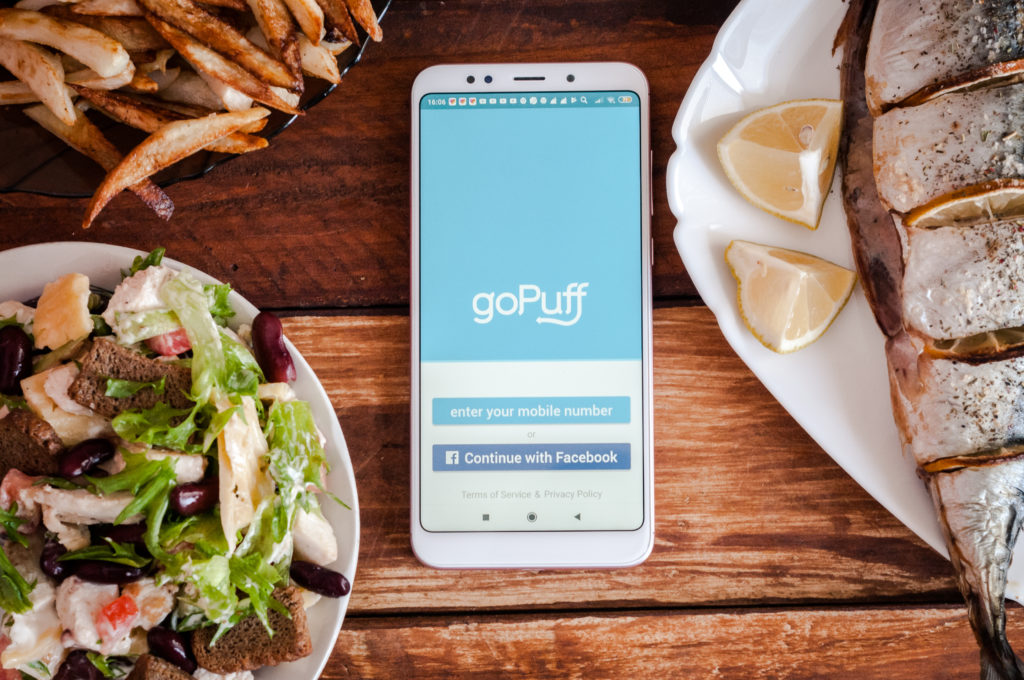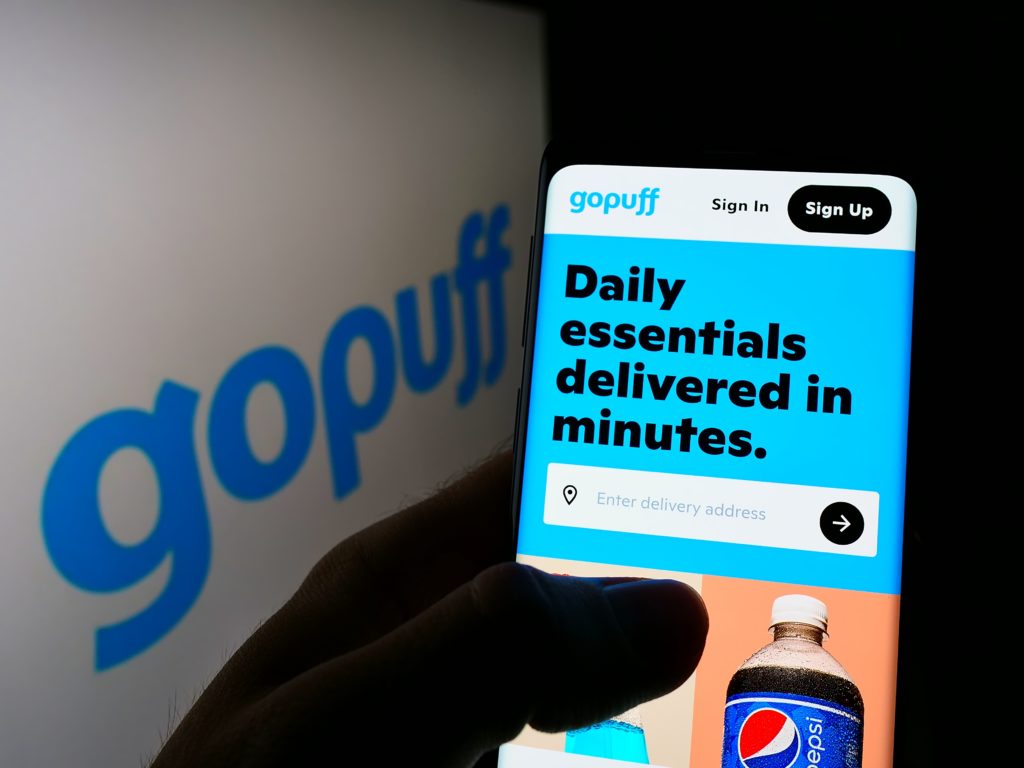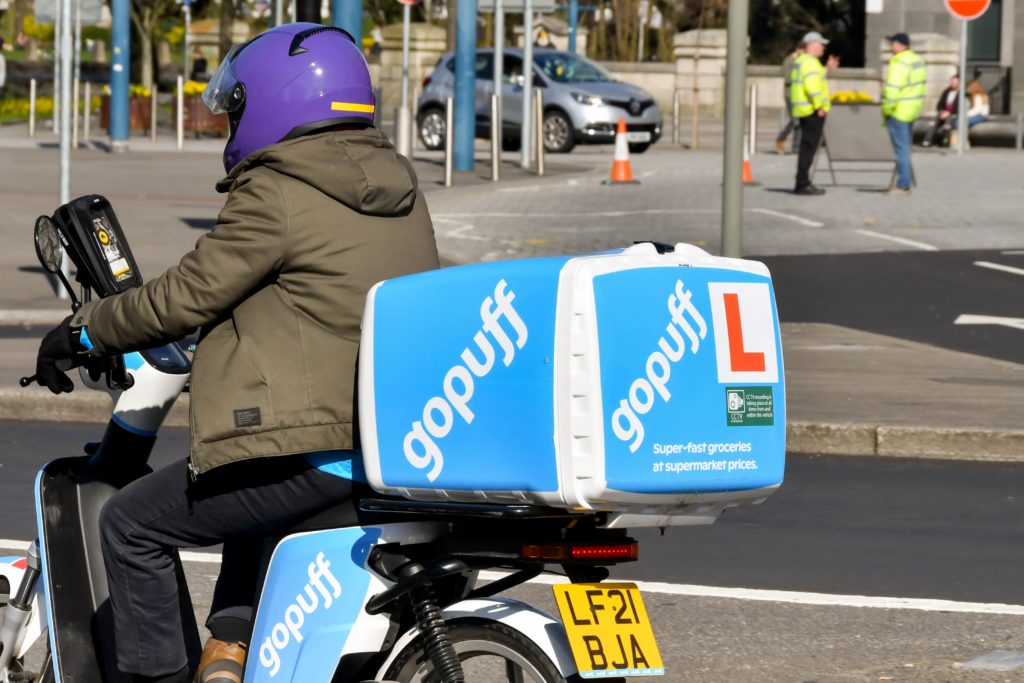
- Products
- Solutions
- Learn
- Partner
- Try Now
GoPuff has paused its fast delivery service after quickly expanding in recent years and is striving to pivot in the face of increasingly difficult market conditions.
The company announced its second round of layoffs in less than four months last week. It also said that it is scaling back its network of micro-warehouses in the United States, which deliver convenience items to clients in 30 minutes or less.

The move reflects a tightening investment environment that has become less favorable to businesses that cannot establish a short-term path to profitability.
In a note to investors, GoPuff founders and co-CEOs Yakir Gola and Rafael Ilishayev claimed that the company is focused on accelerating its path to profitability and intends to generate a profit in two years. They believe that the bigger quick delivery business, which has recently been afflicted by closures among a plethora of colorfully referred-to companies, has reached “an inflection point.”
“The bubble on quick delivery is bursting,” says Celia Van Wickel, senior director of digital commerce at Kantar.
Given that GoPuff is by far the leader in rapid delivery, its troubles appear to have clouded the picture for an opportunity that startups, digital corporations, and major merchants are all vying for.
While the path ahead has become considerably more difficult for GoPuff and others, experts say there is still a definite market potential for enterprises to seize. They must adapt their company strategy and their expectations. It turns out that success will take more than 15 minutes to come.
Getting to profitability faster
According to Gola and Ilishayev’s memo, GoPuff was pushed to develop rapidly during the recent bull market. According to Bloomberg, around half of the company’s 600 warehouses went live in the previous year, citing sources familiar with the company’s operations. Each facility, according to the publication, costs around $250,000 to open.
According to GoPuff, it is profitable in markets where it has been operational for at least 18 months. According to Berke’s study, just a quarter of Gopuff’s warehouses receive enough orders per day to be profitable, and increasing business at the other locations may take longer than investors are willing to wait.

To generate money, Gopuff’s fulfillment centers must get at least 400 orders every day, but only approximately 10 to 20% of them do, according to him.
While Berke believes Gopuff’s long-term prospects remain excellent, he believes the company may need to close more facilities to satisfy investors who have far less patience than they had last year, when GoPuff raised more than $1 billion at a $15 billion valuation.
GoPuff isn’t alone in the downfall
On this descending road, GoPuff is not alone. According to The Information, it took only eight months for Jokr, a rapid delivery firm, to become a unicorn, and another six months for its plan to fall apart. Jokr has blanketed New York City with eye-catching advertisements promising to deliver groceries in 15 minutes, for free, with no minimum order.
Jokr also secured $430 million in venture capital funding to fuel its development in various locations across the world. Jokr has pledged to construct over 100 micro warehouses in just New York City.
Profit margins in the grocery sector are razor-thin. According to a McKinsey study, grocers profit just 4% on purchases fulfilled in-store but lose 13% on average on internet orders. Furthermore, during the early stages of the pandemic, online grocery orders jumped by 50%, while demand for fast delivery increased by 41%.
This is understandable in extreme circumstances, such as a pandemic-forced lockdown, where people are willing to pay a premium for the convenience of home delivery, but in happier times, it appears to me that people would rather walk down to the corner kirana store than pay a delivery company a premium for its service.
GoPuff hopes to streamline operations
GoPuff confirmed its intention to lay off staff in a memo sent to investors on July 12, according to Grocery Dive. The co-founders and co-CEOs, Yakir Gola and Rafael Ilishayev indicated that the move was undertaken to streamline their operations.
According to Grocery Dive, around 76 of the company’s ‘dark stores,’ which function as hybrid storefronts and warehouses, would also close (via Vaimo). According to the paper, these activities were motivated by a difficult business environment.

“We were encouraged to expand our regional reach during a bull market. We discovered that we can be more efficient by focusing on developing our high-performing MFCs to drive profitable development in each market when we assessed the business in light of today’s economic situation” read the memo in accordance with Grocery Drive.
The future
Quick delivery Startups may be able to boost their operations by storing products in “dark stores,” which are micro fulfillment centers meant to allow a worker to select out and pack a basket of goods faster than in a traditional retail store geared for browsing.
They can also pass on higher prices to clients, such as selling a $4 loaf of bread for $6. However, constructing enough dark businesses to service all areas of a city within 15 minutes still necessitates significant expenditure. Managing inventory across all of them to guarantee the right supplies are constantly on hand is similarly difficult. It’s more cost-effective, but there has to be enough demand to generate a return on investment.
Many rapid delivery companies have aggravated their severe economics by giving hefty deals in an attempt to attract new customers. In 2021, 1520, a New York-based firm, promised 15-minute delivery with no minimum order or delivery cost.
Cofounder Maria Daniltceva called the company’s business strategy “super-efficient,” and said that since it didn’t have to invest in retail space, 1520 might even outperform on grocery store profitability. By the end of 2021, 1520 had depleted its funding and had to close its doors.
Such hefty deals are unlikely to continue. To survive until 2023, speedy delivery companies must demonstrate that they can make their economics work—and quickly. Instacart, which has become a market leader in same-day grocery delivery, is now developing its own service that would deliver orders to customers within 15 minutes. The category winners will be the companies that can deliver on their promises the fastest without violating economic realities.
Subscribe to stay ahead with the latest updates and entrepreneurial insights!

Subscribe to our newsletter
Get access to the latest industry & product insights.





















